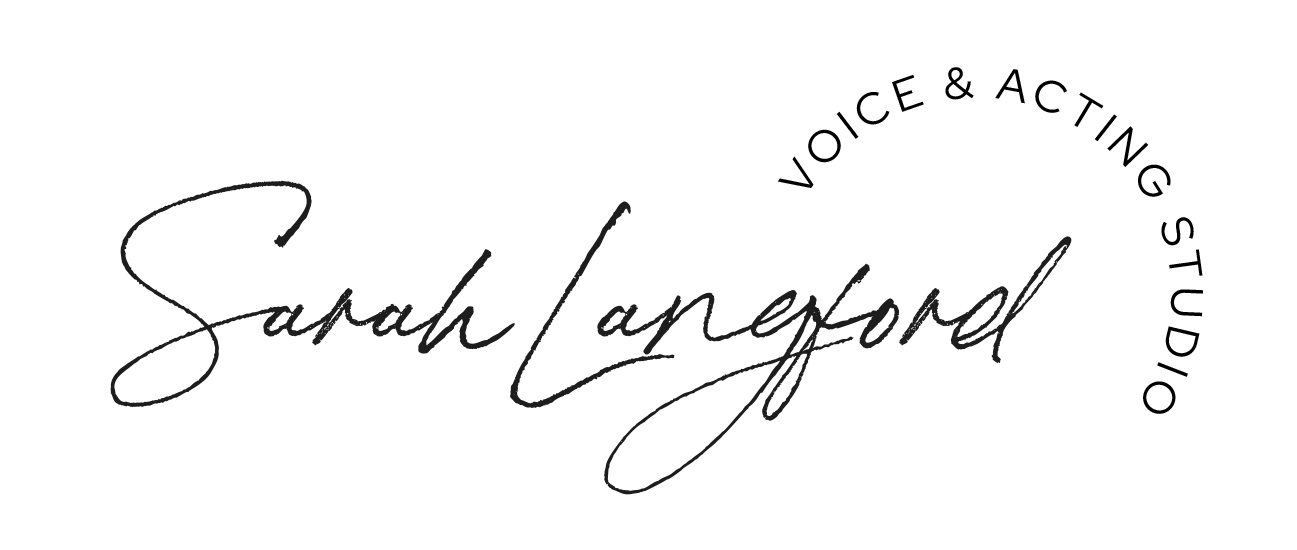


The Method
A versatile educator, Sarah Langford has experience as a private voice and acting teacher, stage director, vocal adjudicator, and master class presenter.
—
Sarah’s method is to listen, to observe, and to nurture. Every person is complex, and brings a complex mix of physical attributes, passion for singing, and even fear and tension, into the voice studio. Her knowledge of how the voice works and what pitfalls to avoid help singers at all levels with an emphasis on strengthening healthy technique.
Her approach is to simplify your vocal journey in order to help reinforce your singing technique, clarify how your instrument works, and show you which muscles to activate or release to allow the voice to work beautifully and productively.
WORK WITH SARAH

kind words
“It was through [Sarah’s] love of this art form and singing that I developed my passion to pursue a career in opera. She taught me the essential elements of singing that I carry through today in practice and performance.”
SHANTELLE PRZYBYLO
Soloist at Washington National Opera
“I am thankful for the foundation Sarah Langford gave me as I was preparing my professional auditions. Sarah has an amazing capacity for making her lessons both rigorous and enormously enjoyable.”
BETH KAPLIN
Principal Soprano, San Francisco Opera
“I have learned more than I ever thought was possible. Not only has she taught me proper technique and skills but she has also brought me out of my shell and helped me discover self-confidence.”
JAMIE SCHOUTEN
“Sarah pushes me to be my best in a safe and encouraging environment and has helped me re-discover my joy for singing. Her virtual lessons via Zoom have been equally effective (and more convenient) as seeing her in person.”
DAVID SMITH
LATEST RESOURCES
ON THE BLOG
Acting is a passion that requires a great amount of discipline, and learning how to memorize lines is just one of many skills that every great actor must master. While every actor has their own methods for memorization, here are some tried and true methods for learning your lines.
Virtual self-tape auditions come with a unique set of skills as an actor.
Find in this blog some quick tips and tricks to pay special attention to so that you come across polished, and memorable.
Choose an audition song that best reflects you and your skill set and not what you think the panel wants to hear.
This blog is my breakdown of the six most common types of songs you can expect in your favourite musical. From the beginning of music theatre writing, composers and lyricists discovered that some song types proved quite useful for particular places in a production to shape and round the story and plot. As the years have gone by, contemporary music theatre writers have left the “standard” format and explored other, flexible song forms. However, these types of songs have proved continually useful because they are so entrenched in the audiences perception and as such have become important parts of most musicals.
What is the best broadway song to have ever been be written?
With over a century of countless productions, Broadway has amassed a vast repertoire of songs that have are loved by audiences around the world. From classic tunes that have stood the test of time to more recent hits that have captured the hearts of new generations of music theatre lovers, Broadway music has a timeless appeal that transcends borders and cultures. Find here a list of 50 Best Broadway songs for singers guaranteed to give a performer an epic sing.
Your body is listening. It hears your thoughts, and it reacts accordingly. There is always something that can discourage, distract, and dismiss those positive thoughts towards staying on the path as you share your gifts.
Did you know that it can take up to 4 hours for the water to reach your vocal folds? So the water you drink back stage 10 minutes before you go on stage does not have any immediate effect on the voice. Topical hydration (steaming) puts drops of water onto the surface of the vocal folds. These droplets get deposited onto the surface of the vocal folds. This kind of hydration can be effective, but is very temporary, with its effects lasting anywhere from just a few minutes to a few hours. Systemic hydration is the most effective process. Find tips for the best hydration for singers.
Ten Remedies to help Release tense, locked jaw and Recover from Trismus.
Trismus or Lockjaw is a bilateral restriction in mouth opening. It is a medical condition in which the normal motion of the mandible ( jaw) is reduced as a result of sustained, tetanic spasm of the masticatory muscles mediated by the trigeminal nerve. It causes spasms in the mastication muscles, which we use to chew. The muscles tighten and shorten, hindering the temporomandibular joint's movement. Find tips to help heal from lock jaw.
Find a list of amazing Kander and Ebb songs. Composer John Kander and lyricist Fred Ebb collaborated for more than forty years, one of the longest-running and most successful creative partnerships in Broadway history. Together they wrote over twenty musicals and many film scores. Their two most successful works, Cabaret and Chicago, had critically acclaimed Broadway revivals and were made into Oscar-winning films. Their work specializes in spotlighting social and political themes in period settings. Their songs are fabulous for learning voice techniques and they have an amazing variety for all types of singers.
Do you suffer from neck, jaw, or throat tension while singing? You are not alone. This is one of the most common issues I hear as a teacher when students enter my studio. I hope this post will help you begin to find a few solutions for your tension issues.
A frequently asked question in my studio is: “How should I select songs that best suit my own voice?” I am often asked to assist and guide in repertoire selections for my students.
It’s really important to keep learning new repertoire in a variety of genres. If you are consistently working on your technique and building healthy singing methods, your voice will develop optimal tonal outcomes which can be utilized in a variety of styles. Singing in different genres can increase your vocal abilities and skills. Don’t be afraid to explore. Expand your identity as a singer.
Here is a list of CRUCIAL THINGS TO CONSIDER when choosing a repertoire.














